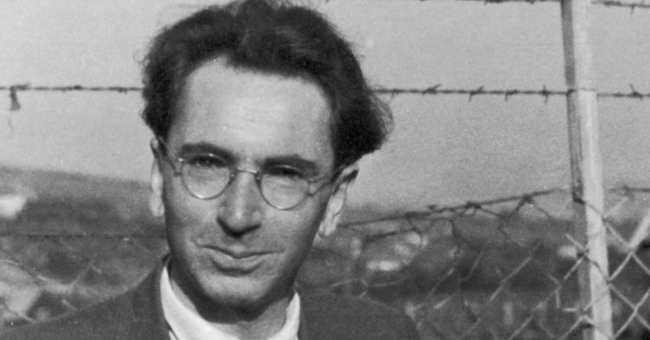During these extraordinary times, it’s easy to become overwhelmed with anxiety and fear. Will I be safe? Will my family be safe? How will I pay for food, rent, mortgage? When will it end?

In his ground-breaking book, Man’s Search for Meaning, holocaust survivor Viktor Frankl describes his heartbreaking loss in a letter to friends after his liberation from Auschwitz.
“I have only sad news to communicate,” Frankly writes, “shortly before my departure from Munich, I learned that my mother was sent to Auschwitz a week after me. What that means, you know all too well. And I had scarcely arrived in Vienna when I was told that my wife is also dead. … So now I’m all alone. Whoever has not shared a similar fate cannot understand me. I am terribly tired, terribly sad, terribly lonely. I have nothing more to hope for and nothing more to fear.”
However, in the same letter, Frankl wrote these remarkable words:
“I take nothing away from my former affirmation of life, when I experience the things I have described. On the contrary, if I had not had this rock-solid, positive view of life —what would have become of me in these last weeks, in those months in the camp? But I now see things in a larger dimension. I see increasingly that life is so very meaningful, that in suffering and even in failure there must still be meaning.”
In the depths of loss and depression, Frankl teaches us that life remains meaningful.
Although faith is not an ethical value, its importance in driving ethical conduct should not be underestimated. In fact, the word faith comes from the Latin word, fidere, meaning ‘to trust.’
Trusting can sometimes be difficult, but it can uplift and strengthen our resolve to reach beyond ourselves to overcome momentary egocentric fear and open up to seeing ourselves in another. It’s acting “outside ourselves,” as former Marine Captain Dale Dye says.
“Faith,” Rev. Gaylon McDowell tells us, “is our ability to see the possibilities of life. Faith sees ideas where fear sees disbelief. Faith sees opportunities where fear sees obstacles. Faith sees potential where fear sees problems. Faith sees abundance where fear sees lack and limitation.”
During times of fear and uncertainty, we can look outside ourselves and accept that change is inevitable. If we can accept change and maintain faith, we can remove fear.
“Everything,” Frankl writes, “can be taken from a man but one thing: the last of the human freedoms – to choose one’s attitude in any given set of circumstances, to choose one’s own way.”
Comments
Leave a Comment










Oh yes Jim, such a great quote from Dr. Frankl: ““Everything can be taken from a man but one thing: the last of the human freedoms – to choose one’s attitude.”